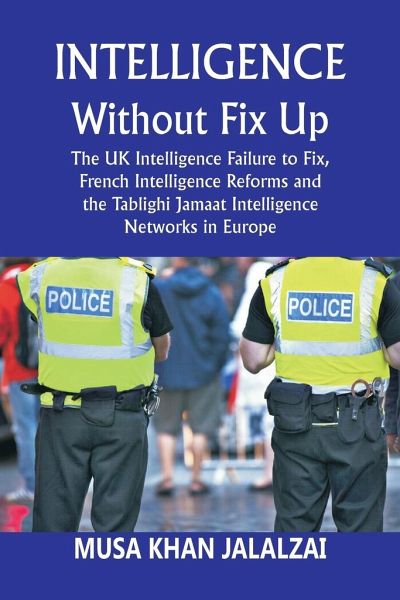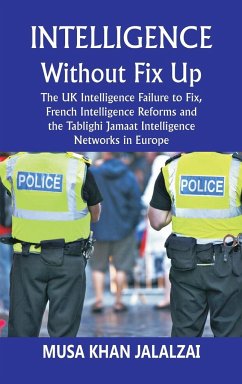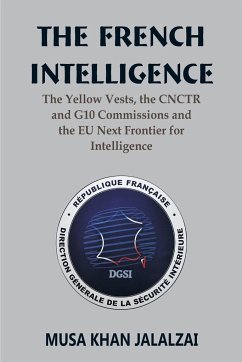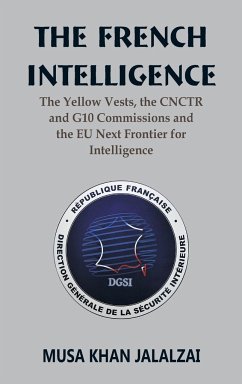
Intelligence without Fix Up
The UK Intelligence Failure to Fix, French Intelligence Reforms and the Tablighi Jamaat Intelligence Networks in Europe

PAYBACK Punkte
18 °P sammeln!
Technology has empowered antagonism with the ability to form nearly enough factions to erode the power of the state. It has enabled the theft of secrets and the proliferation of dangerous knowledge over vast distances. Governments no longer have a monopoly over information. Secrets are harder to keep than ever before. At the same time, technology has made the dream of near real-time fusion of intelligence come true. It has revolutionised tradecraft and continued to hold out the promise of being able to detect dangerous corporeality. After the Cold War and the collapse of the Soviet Union in th...
Technology has empowered antagonism with the ability to form nearly enough factions to erode the power of the state. It has enabled the theft of secrets and the proliferation of dangerous knowledge over vast distances. Governments no longer have a monopoly over information. Secrets are harder to keep than ever before. At the same time, technology has made the dream of near real-time fusion of intelligence come true. It has revolutionised tradecraft and continued to hold out the promise of being able to detect dangerous corporeality. After the Cold War and the collapse of the Soviet Union in the 1990s, intelligence agencies were desperately looking for a different mission to justify their existence. The mandate of intelligence defines its job and stresses the need to perform it within a legal framework and demonstrate resilience and ambitions. In several European states, during the operation of intelligence agencies, many things are not going in the right direction. These kinds of operations have never been successful. A clearly defined mandate helps a security intelligence service to function within a statutory remit. Through various measures, intelligence agencies collect information about sarcastic elements and foreign networks. Following the post-cold war intelligence mechanism in Britain and European Union member states, the emerging threat of foreign espionage has become precarious to national security. Cyber terrorism and information theft are a second type of threat to the economy and businesses of the government. However, one type of espionage that has not emaciated but rather expanded after the end of the Cold War is economic espionage. Threat intelligence provides better insight into the threat landscape and threat actors. Foreign espionage is not one kind of interference in the affairs of the state but damages national security. Hostile states have been attempting to harm and intimidate businesses and infiltrate government institutions to create an environment of fear. Some Eastern European intelligence agencies are undergoing a deep crisis of confidence, and national security management. A contest of strength between domestic and foreign intelligence agencies and, a misplaced sense of professional approach, poor organisational management, threaten the security of these states.














